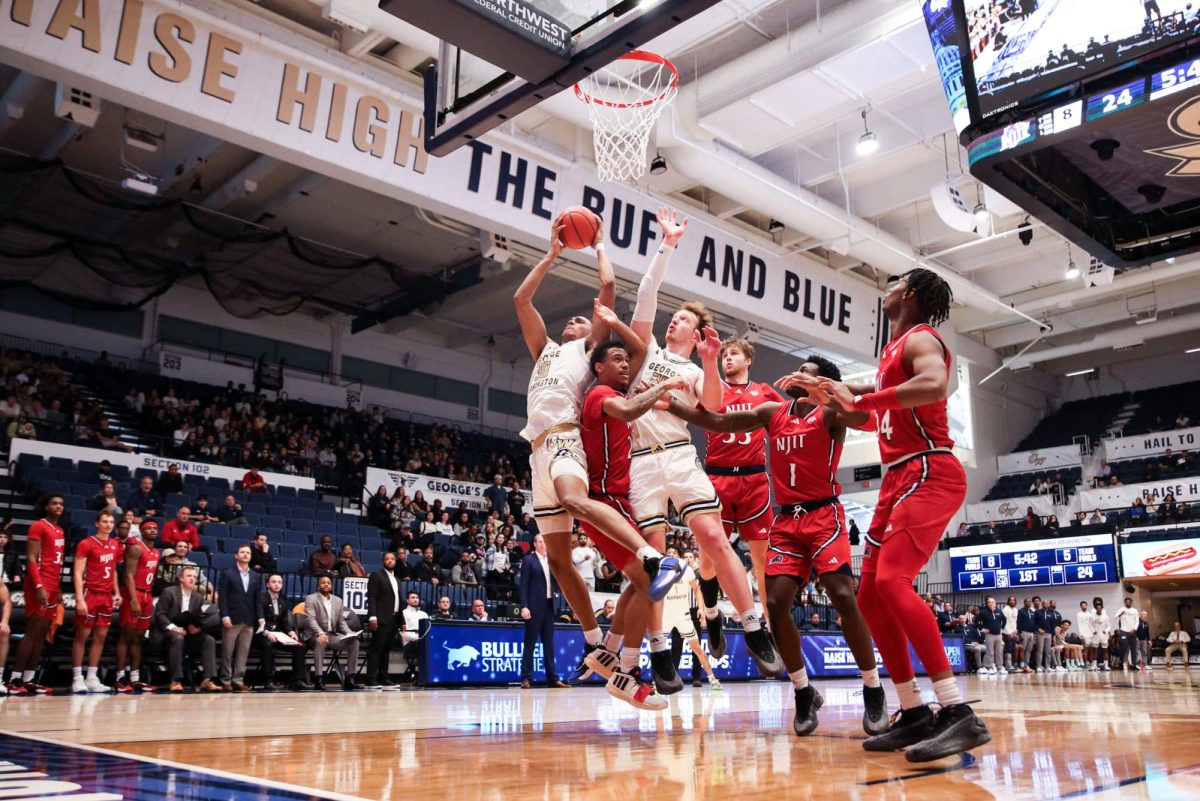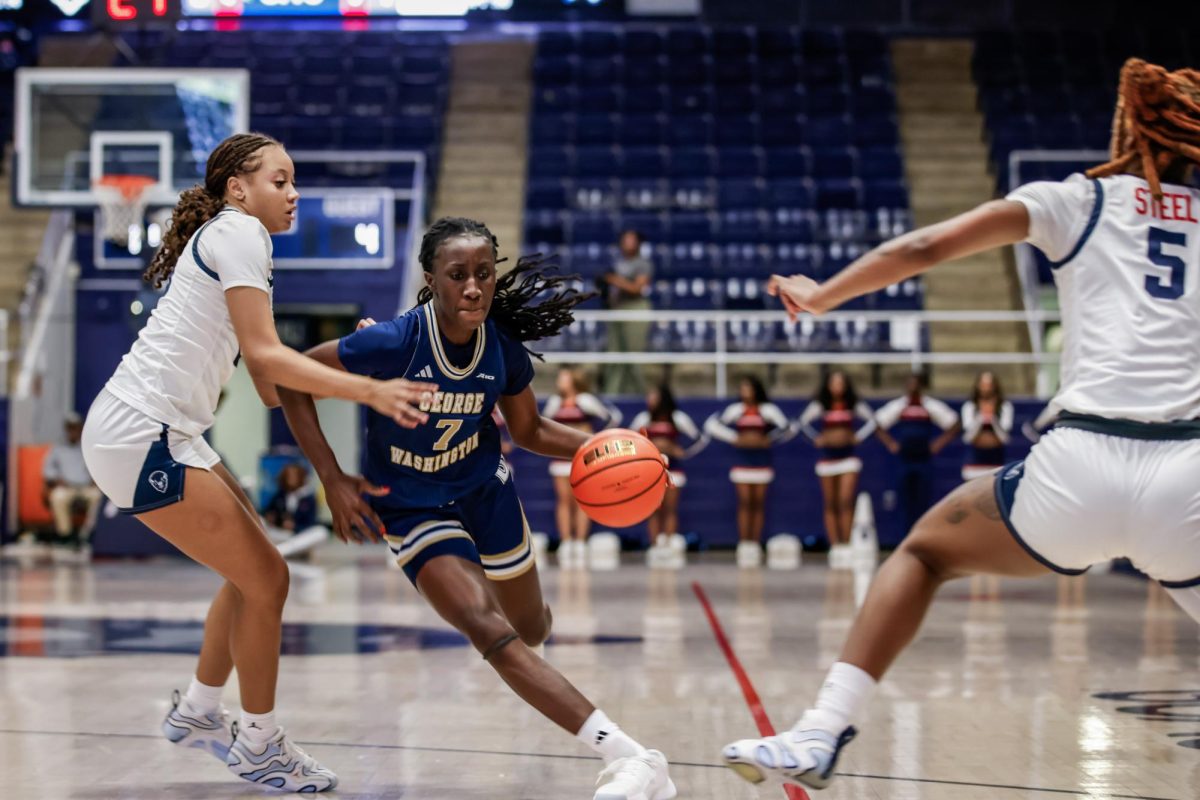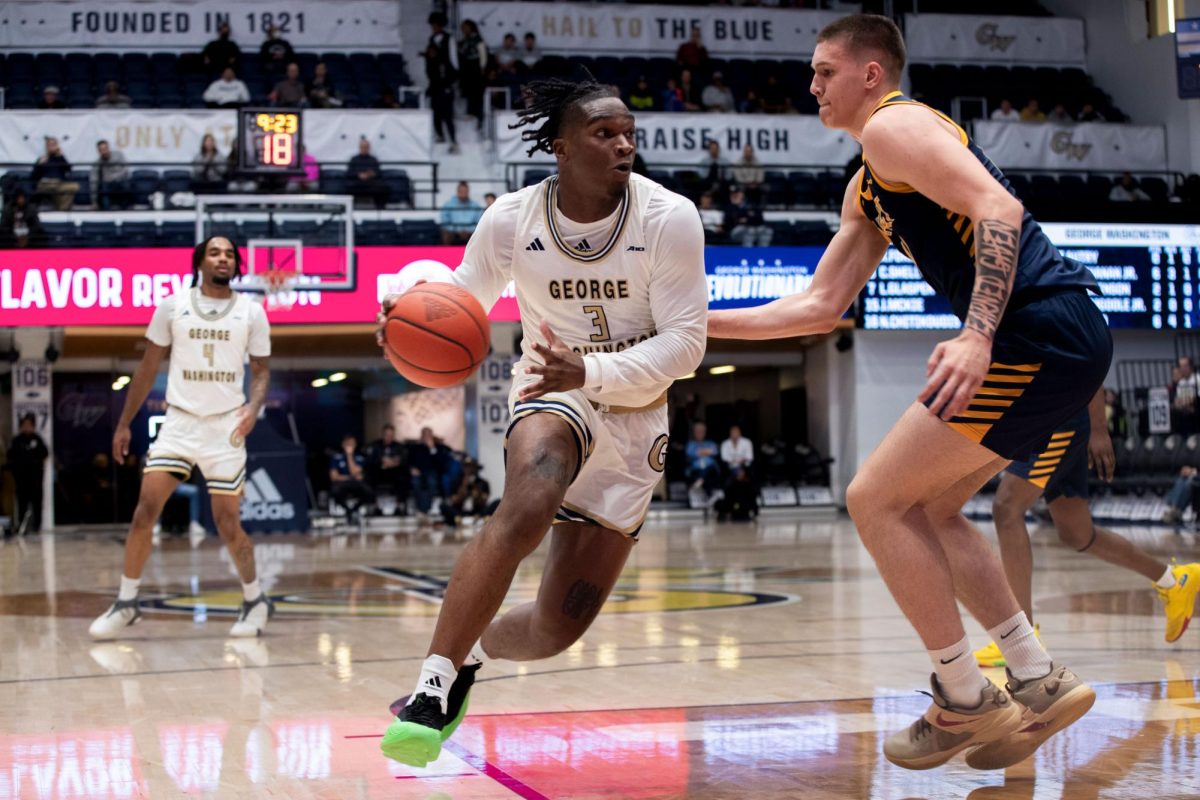
On Jan. 16 of that year, the No. 1 ranked Lady Vols travelled north to take on an undefeated No. 2 Connecticut program on the rise. The Huskies roster featured budding stars Rebecca Lobo, Kara Wolters and junior starting point guard Jennifer Rizzotti.
Rizzotti, named head coach of GW women’s basketball this spring, knew her team was an underdog in the first-ever meeting between the two powerhouses.
The Huskies won 77-66.
“There was a tremendous amount of hype around the game and I think we were underestimated,” Rizzotti said in an interview Wednesday. “What Pat Summitt built at Tennessee, and the standard that she set and how badly all of us players at UConn wanted to beat them was just a testament to the respect that she garnered with her program because they were the standard. Everyone in the country was trying to catch them.”
Summitt, who began coaching in 1974 when she was just 22 years old, died Tuesday at the age of 64, five years after being diagnosed with Alzheimer’s Disease.
In her 38 years coaching the Lady Vols, Summitt led Tennessee to a staggering 8 national titles, 31 straight NCAA Tournament appearances and 1,098 wins—the most of any DI basketball coach, male or female.
Another career highlight of Summitt’s was leading Tennessee in one of the greatest rivalries in college hoops — one Rizzotti, and the sports world, won’t soon forget.
The epic head-to-head series between Tennessee and UConn spanned 12 years and 22 contests, four of which had national championships on the line, thrust the women’s game into the national conversation for the first time and epitomized Summitt’s legendary influence on the sport.
The teams’ second meeting was just a few months later, at the 1995 NCAA Championship. UConn entered the game at 34-0.
Despite her team’s perfect record, Rizzotti recalls Tennessee still being favored.
“People had said, well UConn wouldn’t have won if they hadn’t played at home,” Rizzotti said. “So they definitely aren’t going to beat [Tennessee] two times in a year and again it was just proof of how much people thought Pat Summitt could pull off anything.”
But the Huskies pulled off a win once again, this time by a score of 70-64. While the victory capped a historic campaign captained by head coach Geno Auriemma, Rizzotti credits Summitt with playing a part in that team’s unprecedented success.
“[Summitt] was such a competitor, she drove her team to be so hard to beat, they played so hard and I would say that we have to give her a lot of credit for the rise of the Connecticut program and where it’s come from that day,” Rizzotti said. “She pushed all of us to be better.”
Tennessee would exact revenge the following year, ousting UConn from the NCAA Tournament in the Final Four during Rizzotti’s senior season, and claim back-to-back-to-back national titles between 1996 and 1998.
The annual regular-season series between the schools was discontinued in 2007, and the sides haven’t met since. UConn currently leads Tennessee 13-9 in the all-time series.
In her 17 years coaching at the University Hartford, where she led the Hawks to four America East Conference championships before coming to Foggy Bottom, Rizzotti never faced off against Summitt, but always was someone she looked up to in her profession.
“One of the things you always hear about her is how hard she was able to drive her kids because of how much she cared about them,” Rizzotti said. “If you want to bring out the best, there has to be a personal relationship that extends beyond the basketball court and when you watch all of these former players and the outpouring of love and respect that they have for her, you know that she did things right.”
Summitt will also be remembered as a trailblazer for women in the college athletics, beginning her tenure just years after Title IX was passed, a law demanding that federally funded educational institutions provide men and women equal opportunity.
“She paved the way for all of us, men and women that are in the game. And women that are in other sports. She’s set the standard for what it means to have equal opportunity for female athletes,” Rizzotti said. “I can’t imagine how hard it used to be to be a coach or a player back in the 60s and 70s so I’m very grateful to her and all the pioneers of our game.”






